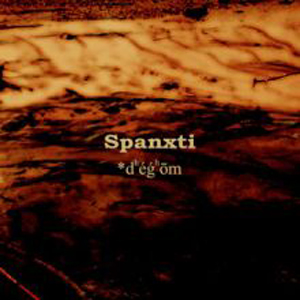
 |
|
 |
Format: CD Label & Cat.Number: Autarkeia acd 068 Release Year: 2012 Note: debut-album of a Lithuanian martial / ambient / folk - project devoted to re-state ancient rituals & prayers of the past by Indo-European tribes, using original Iranian / Old Prussian / Old High German / Gothic / etc. language..
Price (incl. 19% VAT): €12.00 Warning: Currently we do not have this album in stock!
More Info"Lithuanian project Spanxti may be called a professional of post industrial scene, nevertheless that Dheghom is their first album. The new ambient/martial record is full of maturity and has a highly elaborated structure, dedicated to recall the atmosphere and gravity of ancient rituals. Every single track represents a separate ritual which is extremely authentic in the way it simulates rituals performed by ancestors in the past. They were created by the Indo-European tribes in Indo-European languages, i.e. ancient Iranian, Old Prussian, Old High German, Old Greek, Hittite and Gothic. It was strived to restore the authenticity of rituals by using the original actually witnessed scripts of ritual/mythological content, created in the ancient Indo-European languages above. All scripts are authentic, written down hundreds or thousands of years ago, and clearly represent the outlook of the ancient world. The title of the album is the reconstructed word of the Proto-Indo-European, which means “the earth”. The whole album is an integral ritual, consisting of a few smaller ones, and a certain attempt to experience the archaic spirit in authentic way.The album is released in 200 copies in four different package design versions. This is an absolute ambience of sound through the deep autumn. About each ritual separately: ANĀHITA is a fragment of ancient Iranian scripture Avesta. A prayer used by Ahūra Mazda, chief deity of Zoroastrianism, to invite the prophet Zarathustra to praise the ancient Iranian deity of water and fertility Arədvī Sūra Anāhita. More about the deity Anāhita: http://en.wikipedia.org/wiki/Anahita Translation: http://www.avesta.org/ka/yt5sbe.htm The KELLEWESE PERIOTH entwines the sound of short sentences of ritual content in Old Prussian, put down in the 16th century book of H. Maletius, which may, supposedly, reflect fragments of archaic myth about the fight of Thundergod against the Chthonic Powers. The INSPRINC HAPTBANDUN is a first of two so-called Merseburg incantations in Old High German. By this ritual incantation a warrior wounded in the battle field and taken off his liberty calls for Idises, mythological deities guiding the dead warriors to the World of Death, and prays them to release him from the heavy chains and take him to their dwelling. This is one of the very rare scripts of Pre-Christian content in Old High German. More about the Merseburg incantations: [translation]: http://en.wikipedia.org/wiki/Merseburg_Incantations ILIAS is a fragment of Homer’s Ilias, the very beginning of it. The NESAS WASPES is a dirge of the dead Hittite warrior. A warrior calls for his ancestors whose bodies are resting in the cemetery of Nesas, ancient Hittite capital, and prays to accept him. The Hittite language is the oldest Indo-European language witnessed in the ancient scripts. ATTA UNSAR is a fragment of the Gothic Bible by bishop Wulfila [4 c. A.D.] This track terminates trance atmosphere of the ritual in a unique way and turns into nowadays." [label info] www.autarkeia.org |
| © 2007 Drone Records | | Celler Strasse 33, 28205 Bremen, Germany | Privacy and cookies policy | Impressum / Allgemeine Geschaftsbedingungen / Haftungsausschluss | Links to the scene |